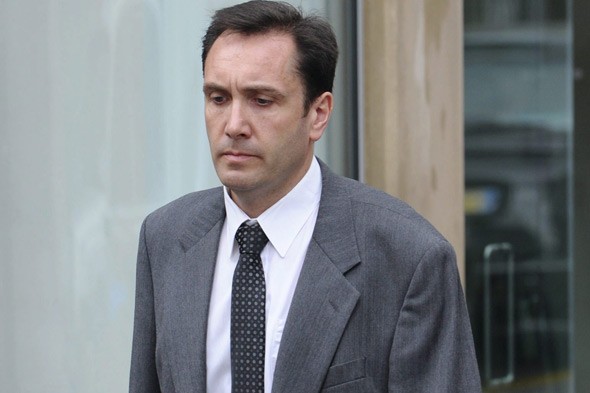Imagine that you are accused of a crime that supposedly took place several years ago. No specific details have been given about where you supposedly committed the offence, nor any specific dates… there is no evidence against you other than a claim made by another person.
You have to construct a defence against these most vague of allegations. You’re not allowed to present important information that will help to confirm your innocence and secure your freedom. The judge deems your expert witness unnecessary. Other important evidence for your defence ‘goes missing’ at the hands of the police. The judge allows a lot more time for the witnesses for the prosecution than your own. He dismisses the jury for lengths of time during which important evidence for your defence is heard. He then mentions Savile’s plausibility in his summing up to the jury.
Imagine, after much deliberation that you are found guilty by a majority of the jury. Many of the hardened court staff are in tears, such is their shock at the verdict.
You are sentenced to 18 years in prison and a permanent place on the Sex Offenders’ Register. You’ve lost your home, your livelihood and many of your friends. You will never again be able to work as a doctor: a job you loved and were respected for. You have been imprisoned for one of the most despised crimes imaginable, you will bear the label of ‘sex offender’ and ‘paedophile’ for the rest of your life and be in constant fear of vigilantes. Your life is in utter ruins But you know you are innocent.

You’re imagining Stephen Hamilton’s experience.
In the last few years many cases of unpunished sex predators have come to light, and as a result the justice system in our country is rushing to redress this historic imbalance. As a result, some people, falsely accused, for a variety reasons, are being sentenced. They are even seen as guilty until proven innocent a complete reversal of the most important tenet of our world-renowned judicial system. The system seems almost to want to condemn them in order to make up for all the people who have got away with sexual abuse crimes scot free hitherto.
We, the general public, believe that the criminal justice system is on our side; that it will protect us from those who do harm, and that if we are innocent we will be recognised as such. We believe that if someone is to be found guilty of a crime, it will be proven in court through the presentation of clear evidence, and the jury, after listening to all the given evidence, will have felt sure, ‘beyond all reasonable doubt’, that the accused is guilty. We believe this, because isn’t this what Britain is historically famous for?
The alternative, that innocent people are condemned, their lives shattered, their freedom stolen, left powerless, is too grim to contemplate.
In reality, however, particularly with crimes of sexual abuse, where it is one person’s word against another, that grim alternative is all too possible. The innocent – among them Stephen Hamilton – can be sent to prison without any compelling evidence.
In England, sex offences can proceed on the word of one complainant only, with no presentation of any corroborative evidence. There is no requirement for medical or forensic evidence; there is no necessity for proof of injury, or for a crime scene to be examined. The standards of evidence for sexual offences have been lowered as a reaction to the low prosecution rate of genuine offenders, and the burden of proof now lies with the alleged offender; it was up to Stephen’s defence to prove that the alleged abuse DID NOT take place. Of the pieces of evidence brought for the defence, some the judge deemed unnecessary, so it was not heard and some he would not allow the jurors to hear: they were sent out. Stephen was in fact tried by one man -the judge – and he, citing Savile’s plausibility in his summing up to the jurors could never be described as unbiased. This is a complete reversal of the presumption of innocence enshrined in Article 11 of the UN Declaration of Human Rights which states that: “Everyone charged with a penal offence has the right to be presumed innocent until proved guilty according to law in a public trial at which he has had all the guarantees necessary for his defence.”

